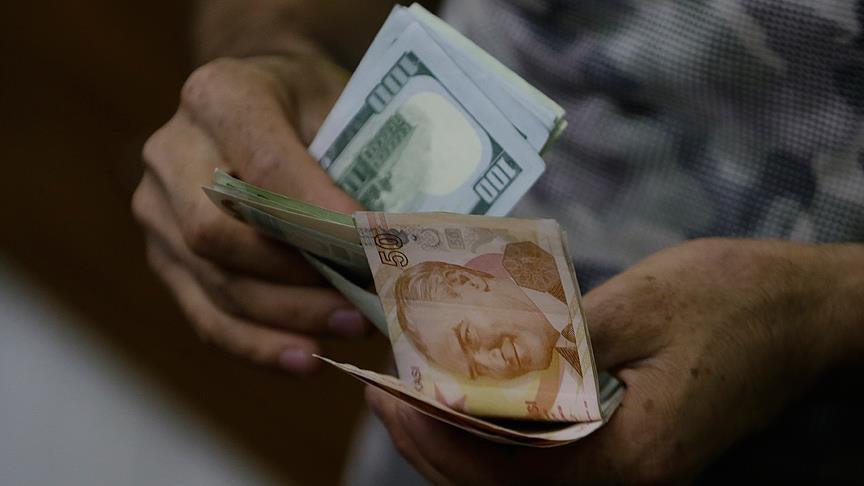
Speaking at the Independent Industrialists and Businessmen's Association (MUSIAD) event addressing 2024 economic evaluations and 2025 expectations, Türkiye's Minister of Treasury and Finance Mehmet Simsek cautioned about potential ripple effects from upcoming U.S. trade policies.
Simsek highlighted that if the new U.S. administration enacts its proposed measures, such as a 60% increase in tariffs on Chinese exports, Türkiye could face indirect but significant impacts.

Simsek explained that heightened tariffs on China might push Chinese exporters to redirect their goods to other markets, including those where Türkiye operates, leading to increased competition.
"The existing capacity won’t disappear. It will shift to other markets, which will affect us in third-party markets. This could accelerate global trade wars," he said.
Despite these challenges, Simsek underscored Türkiye's resilience, citing its strong position as a regional industrial hub with robust logistics capabilities.
The new U.S. trade policies may have a big impact on us because China's exports will change course. If the new U.S. administration follows its pre-election rhetoric and increases tariffs on China by as much as 60%, it could have a serious indirect impact on us.
China or any other country does not destroy the existing installed capacity. It will redirect that capacity to other markets. That will affect us in third markets. Trade wars may gain momentum.
Three quarters of our exports are somewhat more resilient to these trends. But there is no immunity. We need to take these issues into account. We are an important industrial base in our region, we are friendly with our close geography.
Türkiye is also a very important base in terms of logistics. There is fragmentation in global trade, there are serious uncertainties. Türkiye's structure is resilient. There is no reason to be pessimistic. It is very clear that we need to take measures.
We are closely monitoring and taking measures in certain areas.
Türkiye's Minister of Treasury and Finance Mehmet Simsek

Simsek also warned of Türkiye's rapidly aging population, noting that the fertility rate is falling faster than United Nations projections. "We face a real risk of faster aging," he said, adding that measures to boost women’s participation in the workforce are vital to counter this trend.
On inflation, Simsek stated that while disinflation has started, challenges remain, particularly in the services sector. The ministry aims to reduce inflation to approximately 20% in 2024, 10% in 2025, and eventually to single digits.
As the trend continues to deteriorate, we will age faster in the next period. Our trend is worse than the one predicted by the UN. The fertility rate is falling faster.
One of our important areas of structural transformation will be on measures to reverse the slowdown in the fertility rate in the coming period. Our risk of aging faster is a reality.
There will be an 18-year period when the working-age population is still in positive territory. After that it will go negative. One of the important areas to reverse this is women's participation in the labor force. We will take measures for this.
Türkiye's Minister of Treasury and Finance Mehmet Simsek

Simsek highlighted steps taken to reduce vulnerabilities in the economy, including improved fiscal discipline, reduced external borrowing needs, and increased reserves.
"Türkiye's gross external financing need has significantly decreased, and our risk premium has fallen. We now borrow at lower costs," he said.
He pointed out that confidence in the Turkish lira has surged, with its share of deposits increasing from 30% to nearly 60%.
We have reduced vulnerabilities in the Turkish economy and macro financial stability is stronger. We are establishing budget discipline at a time when we are recovering from the earthquake. Disinflation started. The real economy was affected. Our target for 2025 is to accelerate disinflation to a more palpable level and accelerate structural transformation.
The current account deficit has fallen dramatically as a percentage of national income, which is good news. It means we will borrow less foreign debt. Türkiye's need for gross external financing is decreasing. Our reserves have increased, net reserves have increased by more than 100 billion dollars.
Türkiye's vulnerability in terms of reserves has decreased. Türkiye has no more problems in accessing external financing. External debt rollover ratios have increased, borrowing at lower costs. Türkiye's risk premium has fallen.
Türkiye's Minister of Treasury and Finance Mehmet Simsek

Simsek emphasized the importance of budget discipline, defending recent tax measures. "No one likes higher taxes, but without them, the consequences could have been much worse," he said.
He outlined plans for more rigorous audits of large taxpayers and sector-specific profitability reviews in 2025.
The disinflation process has started. Our target is to bring inflation down to around 20% this year, around 10% next year and then to single digits. There is great rigidity in inflation in the services sector, and it will take time to break this rigidity. Why did the headline inflation go up by 44% when the price of goods went up by 36%, because we removed the cap on rents. If we take all services, it went up by 66%, services inflation is more rigid and higher than we had envisaged, and it has just started to react. There are several factors behind the deviation of a few percentage points, but the picture is very clear.
With the disinflation program, we have set our projections for 2024-2026, there is a deviation of a few points in the first half of last year, we believe that this will be compensated in the second half of this year. So this inflation will come down.
There is a difference in the inflation expectations of the real sector and households compared to the program targets, we can reduce this difference partly by building credibility, partly by getting results and partly by better communication and the right policies.
It is said that the revaluation rate is this, and then they expect inflation to fall, except for three products subject to the revaluation rate, which we are increasing at this rate, and their share in the inflation basket is 0.36%.
The most important component of the cost of living is rents. We can solve this by increasing the supply of housing.
Türkiye's Minister of Treasury and Finance Mehmet Simsek

Addressing rising rents, Simsek said that increasing housing supply is key to addressing affordability. "Housing costs are a major component of the cost of living. Expanding supply is the most effective solution," he added.